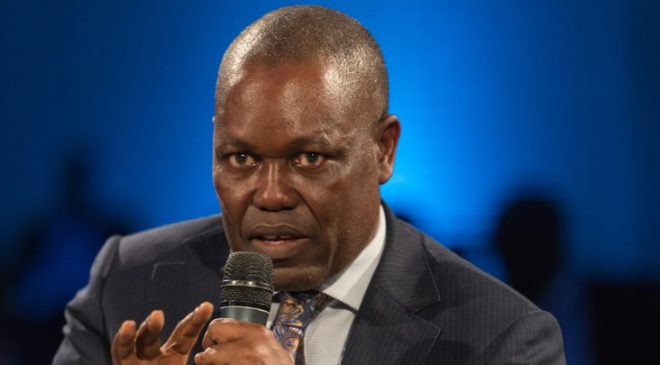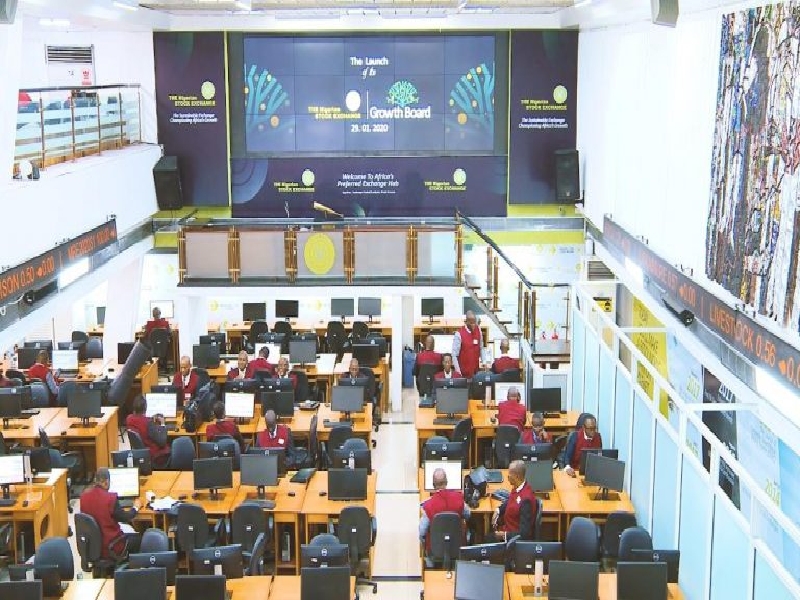Published
3 years agoon

Ecobank Transnational Incorporated Group (ETI) has recorded significant decline in its profit for the year ended December 31, 2020.
According to its financial report for the year filed at the Nigerian Stock Exchange (NSE), the profit after tax (PAT) of the lender stood at $174 million, down $231 million or 57 per cent from 2019.
According to the report, notable items that negatively impacted profit before tax were the $164 million of goodwill charge ($159 million related to Oceanic Bank acquired in 2011 and $4 million related to microfinance entity SOFIPE in Burkina Faso acquired in 2014), and a net monetary loss of $61 million due to hyperinflation in Zimbabwe and South Sudan.
“Adjusting for the goodwill charge, profit before tax for 2020 was $338 million, down $67 million, from 2019. Profit available to ordinary shareholders of the parent company (ETI) was $4 million, down $190 million or 98 per cent from 2019, adversely impacted by the goodwill charge and net monetary loss,” the report showed.
Net revenue (operating income) was $1,680 million for 2020, increasing by $58 million or 4 per cent from 2019. Revenues benefited from an increase in net interest income partially offset by a decrease in non-interest revenues.
Net interest income increased by $157 million or 21 per cent to $907 million, reflecting the benefit of deposit and funding mix. As a result, interest expense declined $179 million, partially offsetting a decrease of $22 million in interest income.
The decrease in interest income was because of the net impact of lower interest rates. The net interest margin (NIM) improved to 5.5 per cent compared with 4.7 per cent in 2019. The cost of funds of 2.3 per cent improved from 3.4 per cent in 2019.
Non-interest revenue declined by $100 million or 11 per cent to $773 million, primarily because consumer and business activities slowed down significantly due to the COVID-19 pandemic. As a result, net fees and commissions income fell by $31 million to $389 million.
The decrease was driven by cash management and related fees, which declined by $11 million to $187 million. Moreover, lockdowns led to decreased spending. As a result, card management fees fell by $15 million to $65 million. Also, credit-related fees and commissions, and portfolio and management fees, declined by $7 million and $10 million, respectively. Net trading income decreased by $35 million to $346 million, driven by lower fees on client driven foreign-exchange sales as trading activities slowed.
Expenses of $1,054 million decreased by $19 million or 2 per cent from 2019. Expenses benefited from targeted actions taken to reset the firm’s cost base, especially amid the challenging operating environment.
Also, savings from the lockdowns and social distancing restrictions implemented at the pandemic’s height reduced expense items such as travel, rent, utilities and training budgets as most activities shifted to digital.
Included in the expense base are legal and restructuring charges of $44 million. The cost-to-income ratio (efficiency ratio) improved by 342 basis points to 62.7 per cent from to 66.2 per cent in 2019.
Impairment losses on loans (net) for 2020 were $182 million, up $72 million from 2019. The higher impairments expense for 2020 reflected lower loan recoveries of $131 million in 2020 compared to $204 million in 2019.
Gross provisions were down $2.1 million to $312 million, reflecting the reduction in non-performing loans. Extra management macro-overlays in reserves of $55 million were proactively taken as a buffer against what remains an uncertain economic outlook.
Consequently, the cost-of-risk increased to 1.85 per cent from 1.12 per cent in 2019. Excluding the macrooverlay, the cost-of-risk was 1.29 per cent.
Taxation Income taxes were $89 million in 2020 compared with $135 million in the prior-year period. The effective income tax rate (ETR) was 26.4 per cent (excluding the impact of one-off goodwill charge) versus 33.3% in 2019.
Ade Ayeyemi, Ecobank Group CEO, said: “2020 was a year which tested the resilience of the human spirit in rising to the many challenges as governments, businesses and households’ unrelentingly strove to keep citizens, clients and loved ones safe. I am proud of Ecobankers’ hard work and continued service to our customers and the support we provide to the communities we serve.” Despite the pandemic’s challenges, revenues increased by 4% to $1.7 billion.

Ade Adeyemi
“Pre-tax pre-provision profits rose 14% to $626 million, reflecting the power of our panAfrican diversified one-bank business model. Our tangible book value per share rose 16% to $0.0547. Pre-tax profits were $174 million, down 57% on last year, due to a $164 million goodwill charge, $61 million in net monetary losses, and legal and restructuring costs of $44 million.
“Corporate and Investment Banking was the primary growth driver, increasing PBT by 45%, as it repositioned the FICC business to offer innovative and structured products. Consumer Bank and Commercial Bank’s profits were down as the pandemic’s reverberations disproportionately affected households and small businesses, but they led the drive in the record growth of our customer deposits of $2bn to reach $18.3bn, thanks to the acceleration in digital channels usage. The regions’ results benefited from continued execution momentum.
“Nigeria improved Return on Equity (ROE) and strengthened liquidity and capital levels. UEMOA and AWA produced strong ROEs reflecting their leadership positions. CESA, hampered by Zimbabwe and South Sudan’s hyperinflation, delivered modest results.
“Group-wide we ended the year with a provisional Total Capital Adequacy Ratio of 12.3% versus 11.6% at the start. We improved our efficiency ratio by 342 basis points to 62.7% as we continued resetting the firm’s cost base. With pre-tax, pre-provision profits up $77m, we added meaningfully to gross impairment reserves. We are turning the curve on asset quality.
“Non-performing loans reduced substantially, evidenced by our 7.6% NPL ratio. We closed with a coverage ratio of 75%, compared to 58% in 2019, and are aiming for 100% in the near term. “We will continue to invest in our technology and payment business capabilities to ensure we deliver excellence in customer service.
“We remain optimistic about future growth and ability to create shareholder value by utilising our investments and achievements to grow revenues and generate long-term returns, despite the near term challenges from COVID-19. I thank all Ecobankers for their continued dedication to helping our customers, communities and governments.” Ayeyemi concluded.














